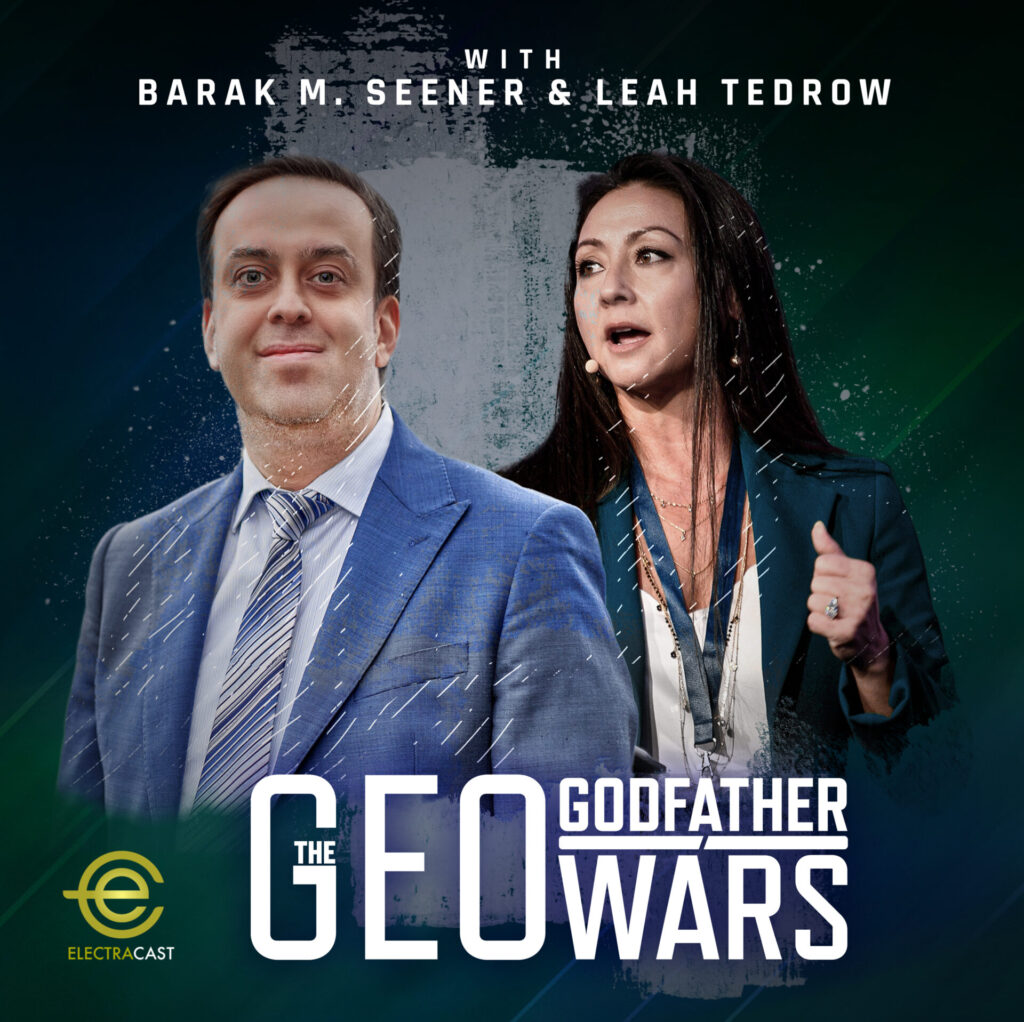ABOUT the
Geo Godfather
Wars
Barak Seener, Leah Tedrow and guest experts offer an analytical approach to geopolitics enabling viewers to be ahead of the curve and effectively mitigate risk. In an age of disinformation and changing trade & business practices, companies as well as members of the public want to sift between real and ‘fake news’ and have a deeper understanding of future trends and how global affairs are interconnected. Our security and economic landscapes are impacted by Coronavirus, a rising China, a resurgent Russia & a nuclear aspiring Iran leading to shifting trade patterns, heightening risk to industries & investment portfolios, creating barriers to entry to foreign markets & creating market volatility.
In 2019, Barak Seener published the Godfather Wars that provides models for understanding current geopolitical dynamics which has the potential for being developed further in the future. In his background as a geopolitical expert, he seeks to provide a holistic lens on how security, trade, economic, technological dynamics as well as business practices fuel each other.
We will also address how the public adapt to a rapidly changing civic and political culture as the private and public sectors are becoming fused?
In this podcast, we invite experts that offer exciting insights into the future to empower the audience to make informed decisions.
Leah Tedrow: A strategic communications expert who has helped shape narratives, messages and geo-political environments for over 25 years. Specializing in social engineering campaigns in conflict, post-conflict and developing areas.
Leah has been on-the-ground helping to build understanding and contextualization of environments and drive relationship building on behalf of diplomatic peace building and nation building efforts through transparent communications and infrastructural, socio-economic and city-activation initiatives in some of the most hostile environments in the world. Her experience brings a real-world perspective to the challenges and realities of the world today
Barak M. Seener is the founder of Strategic Intelligentia that provides geopolitical risk assessments. Previously, Barak was a Global Intelligence Manager at HSBC and the Middle East Director at the Royal United Services Institute (RUSI) on whose behalf he has debriefed international defence and security policy makers and diplomats on matters relating to Middle East security. Barak has lectured at NATO as well as the Royal College for Defence Studies. Prior to joining RUSI, Barak was one of the Henry Jackson Society’s founders in Westminster and was the Henry Jackson Society’s Greater Middle East Section Director.
Barak has published and provided analysis and expert commentary for a range of international broadcasters including Newsweek, Al-Jazeera, BBC, CNN, Chinese CCTV, Fox News, Sky News, Voice of America, and news outlets such as Bloomberg, Reuters, Associated Press, the Evening Standard, Jerusalem Post and Xinhua.
Barak has published in journals including The National Interest, The American Interest, Middle East Quarterly, Jane’s Intelligence Review and Jane’s Islamic Affairs Analyst, RUSI Newsbrief and Infocus.
Why we're doing this
In an age of disinformation, companies as well as members of the public want to sift between real and ‘fake news’ and have a deeper understanding of future trends and how global affairs are interconnected.
The show will have an analytical approach to geopolitics that enable viewers to be ahead of the curve in order to effectively mitigate risk. In the aftermath of Coronavirus, levels of global risk are heightened due to US-China tensions, a resurgent Russia and a nuclear aspiring Iran. These are impacting upon investment portfolios, shifting trade patterns, making markets more volatile, changing business practices and creating barriers to entry to foreign markets.
This is of interest to a range of industries & services including: oil, gas, financial services, fintech, risk management, telecommunications, cyber-security, financial crime, technology, insurance, shipping, and infrastructure development.

The Episode Schedule
-
#100. The Geo Godfather Wars - Introduction LISTEN NOW
Barak Seener, Leah Tedrow and guest experts offer an analytical approach to geopolitics enabling viewers to be ahead of the curve and effectively mitigate risk. In an age of disinformation and changing trade & business practices, companies as well as members of the public want to sift between real and ‘fake news’ and have a deeper understanding of future trends and how global affairs are interconnected.
-
#101. Ukraine - The World after the war - Part I LISTEN NOW
Does the West have less resolve than initially thought? Does it undermined the sacrosanct nature of sovereignty? Does it undermine the US led international system?
-
#102. Ukraine - The World after the war - Part II Listen Now
Part II of the episode series, Ukraine: The World After the War, digs deeper into the realities on the ground, deeper analysis and insights, guest interviews and our regular feature segments. Guest Speaker - Michael Clarke - Former Director General of the Royal United Services Institute (RUSI), Specialist Advisor to the British Joint Committee on National Security Strategy, & specialist adviser to the House of Commons Defence Committee.
-
#103. Is Israel Equipped to Form a Plan for Gaza the Day After? Listen Now
This podcast considers how Israel’s lack of a strategic communications strategy impacts its ability to formulate a plan for Gaza the day after. Guest interview with Dr. Vera Michlin-Shapir - Director of Education at Sympodium Institute for Strategic Communications and Visiting Research Fellow at the Russia Institute at King's College London. Dr. Vera Michlin-Shapir was a former Research Fellow at the Israeli Institute for National Security Studies and previously worked at Israel’s National Security Council, Prime Minister's Office.
-
#104. Challenges of Confronting Hamas & Engaging in Gaza Listen Now
This episode considers Israel’s strategic objectives in the fight against Hamas. What have been the unique features of the first phase of the Gaza conflict? Guest interview with Brigadier General (Ret.) Yossi Kuperwasser, former head of the Research Division at the Israel Defense Forces’ Intelligence Corps, as well as the Director General of the Ministry of Strategic Affairs. Also featuring our regular segments of ‘What this means to you’, and ‘Who’s Who in the Godfather.’
-
#105. What is Driving Palestinian Resistance & Bid for Statehood? Listen Now
This episode considers whether Palestinian nationalism is driven by radical Islamism rather than territorial aspirations. Guest interview with Colonel (Ret.) Dr. Eran Lerman, former deputy director for foreign policy and international affairs at the National Security Council in the Israeli Prime Minister’s Office, and Vice President of the Jerusalem Institute for Strategy and Security. Also featuring our regular segments of ‘What this means to you’, and ‘Who’s Who in the Godfather.’
-
#106. The New Cold War?
The Cold War between the US and Soviet Union was marked by clearly demarcated economic and military spheres of influence. In contrast, today the US and Chinese economies are intertwined and China’s market is vast and is attracting US businesses and investors. How will the US-China competition spill over across a panoply of areas ranging from trade, technology, economics, and security?
-
#107. Cyber Security and the 4th Industrial Revolution
In the post Covid era, there has been an uptick of substate and state sponsored cyber- attacks on governments and businesses. This is undermining productivity and creating a huge financial loss. Are government/company practices changing at the same rate as evolving regulations? As increasingly people are working remotely and all devices are becoming digitally interconnected are we becoming more vulnerable?
-
#108. Does Israel Have Strategic Goals: What Does Israel Offer the Middle East?
Israel faced multiple elections and political deadlock due to its political system of Proportionate Representation that prevented it from capitalizing on a Trump administration that gave it carte blanche to advance any policies it wanted. Furthermore, the peace deals between Israel and the UAE, Bahrain, and Sudan was not a result of an Israeli strategy. Rather, it was due to the mutual Iranian threat, US energy independence, a reduction of oil prices and Israel’s hi-tech sector that could benefit the GCC’s bid for economic diversification and development of a digital economy.
-
#109. The New World Order
The Post WWII international system that promotes liberal trade and democratic governance is being challenged by a resurgent China that promotes alternative values. Will democracy promotion and free-market economics be rolled back by China and developing nations? How can this impact security dynamics and trade practices?
-
#110. What Does a Light US Footprint Mean for the Middle East?
After nearly 2 decades of being immersed in the Middle East, US has attempted to reduce its presence and pivot its attention on Asia. This has alienated allies and emboldened foes such as Iran, Russia and China as well as Islamists that are filling the void. What does this mean for the security of US allies and is the US likely to be sucked back into the Middle East?
Cast & crew
Leah Tedrow
Co Host & Producer
Barak M. Seener
Co Host & Producer
Peter Rafelson
Executive Producer
Mark Netter
Executive Producer
Marcus Campito
Editor
Phil Shaw
Brand Design
LISTEN, LIKE, SUBSCRIBE
The Geo-Godfather Wars is available on all standard platforms, subscribe today to be the first to listen to the next episode.
Listen on Spotify
Subscribe to The Geo-Godfather Wars podcast on Spotify for regular updates.
Listen on Amazon Music
Subscribe to The Geo-Godfather Wars podcast on Amazon Music for regular updates.
Listen on Apple Music
Subscribe to The Geo-Godfather Wars podcast on Apple Music for regular updates.
Listen on Stitcher
Subscribe to The Geo-Godfather Wars podcast on Stitcher for regular updates.
Listen on Megaphone
Subscribe to The Geo-Godfather Wars podcast on Megaphone for regular updates.
Listen on iHeart Radio
Subscribe to The Geo-Godfather Wars podcast on iHeart Radio for regular updates.
© Copyright The Geo-Godfather Wars 2023 | All Rights Reserved | Site by Evoke International
info@geogodfatherwars.com








